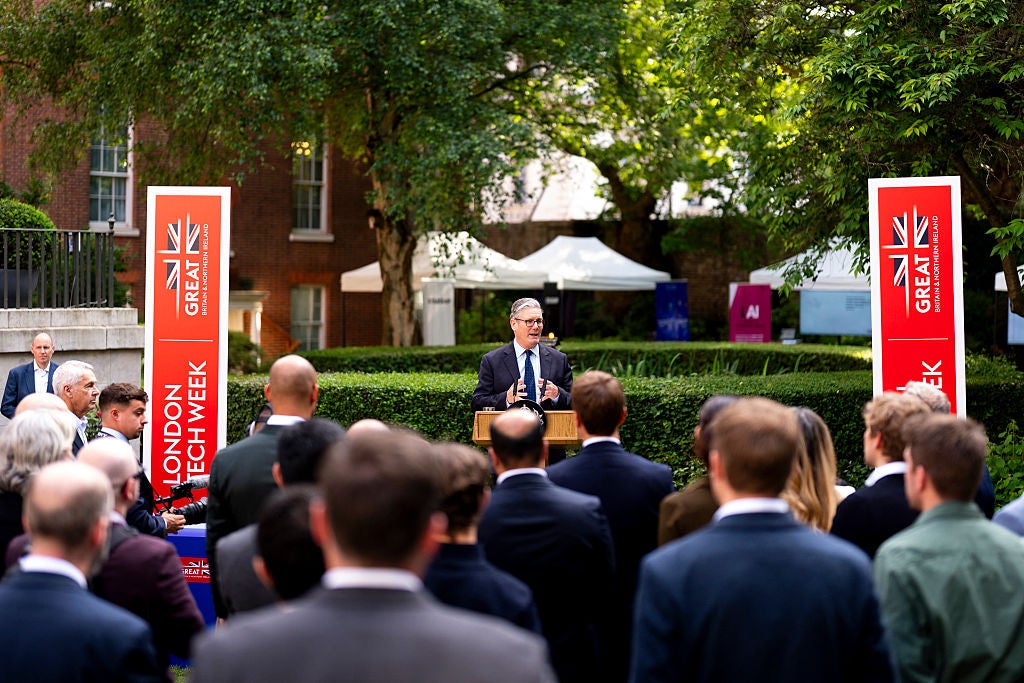ARTICLE AD BOX
 The FTC’s report found that cloud-AI deals could restrict market access. (Photo: Shutterstock)
The FTC’s report found that cloud-AI deals could restrict market access. (Photo: Shutterstock)
The US Federal Trade Commission (FTC) has released a report analysing partnerships between leading cloud service providers (CSPs) and generative AI developers, warning of potential risks to competition. The report, which examines collaborations involving Alphabet, Amazon, Microsoft, OpenAI, and Anthropic, highlights concerns that these agreements could limit market access and create barriers for non-partner AI developers.
“As companies rapidly deploy generative AI technologies, enforcers and policymakers must stay vigilant to guard against business strategies that undermine open markets, opportunity, and innovation,” said FTC Chair Lina Khan. “The FTC’s report sheds light on how partnerships by big tech firms can create lock-in, deprive start-ups of key AI inputs, and reveal sensitive information that can undermine fair competition.”
The report identifies key terms of these partnerships, which include significant equity stakes and revenue-sharing arrangements favouring CSPs. In addition, the agreements grant CSPs consultation, control, and exclusivity rights over their AI developer partners. Developers are required to commit a large proportion of CSP investments to their cloud services, creating dependencies that reinforce reliance on specific providers.
According to the FTC, the partnerships facilitate the sharing of critical resources such as discounted computing power, intellectual property, and sensitive financial and technical data. The report also highlights opportunities for CSPs to integrate AI models into their platforms, enabling product expansions and deployment on cloud-based infrastructure.
The FTC focused on three major partnerships. Microsoft has invested $13.75bn in OpenAI, becoming a key stakeholder in the developer’s operations. Amazon’s $8bn commitment to Anthropic positions it as the company’s primary cloud provider, with the latter allocating significant resources to the Amazon subsidiary. Alphabet’s $2.55bn investment in Anthropic strengthens their collaboration and builds on earlier financial commitments.
The report raises concerns about the broader implications of these partnerships. The agreements grant CSPs control over computing resources and engineering talent, potentially restricting access for other developers. The exclusivity provisions in these agreements also increase technical and contractual barriers, making it challenging for AI developers to switch providers or work with multiple CSPs. Furthermore, the sharing of sensitive technical and business information, including proprietary data and development methods, could provide CSPs with competitive advantages.
The findings are based on data collected up to September 2024, supplemented by publicly available information through January 2025. The FTC’s study aims to provide policymakers, businesses, and consumers with a deeper understanding of how these partnerships influence competition and innovation within the AI and cloud computing sectors.
The report notes that these partnerships could have far-reaching consequences for industries that rely on AI, including healthcare, finance, and transportation. While the FTC report does not assert that these partnerships violate competition laws, it emphasises the importance of regulatory oversight to address potential risks. The findings provide a foundation for evaluating how such collaborations may shape the future of AI and cloud technologies.
International regulatory oversight intensifies on AI partnerships
Regulators in other regions, such as the UK’s Competition and Markets Authority (CMA) and the European Commission (EC), have launched similar investigations into the impact of AI partnerships on market dynamics and competition.
In late 2024, the CMA concluded its review of the partnership between Alphabet and Anthropic, determining that it did not meet the criteria for a merger under UK competition law. The CMA found that Alphabet had not acquired sufficient control over Anthropic to cross the regulatory threshold and noted that Anthropic’s turnover in the UK was below £70m, the benchmark required for turnover-based merger evaluations. The decision forms part of the CMA’s broader scrutiny of collaborations between technology companies and AI startups.
Last year, the CMA reviewed several high-profile deals, including Amazon’s $4bn investment in Anthropic and Microsoft’s stake in Mistral. Both were cleared, with the CMA concluding that the agreements did not qualify as mergers under legal definitions. The CMA’s evaluations reflect growing regulatory attention on partnerships in the AI sector, where collaborations between cloud providers and AI developers are becoming increasingly significant. The rapid rise of technologies like OpenAI’s ChatGPT has spurred global concern about competition and market fairness.

 9 months ago
23
9 months ago
23


